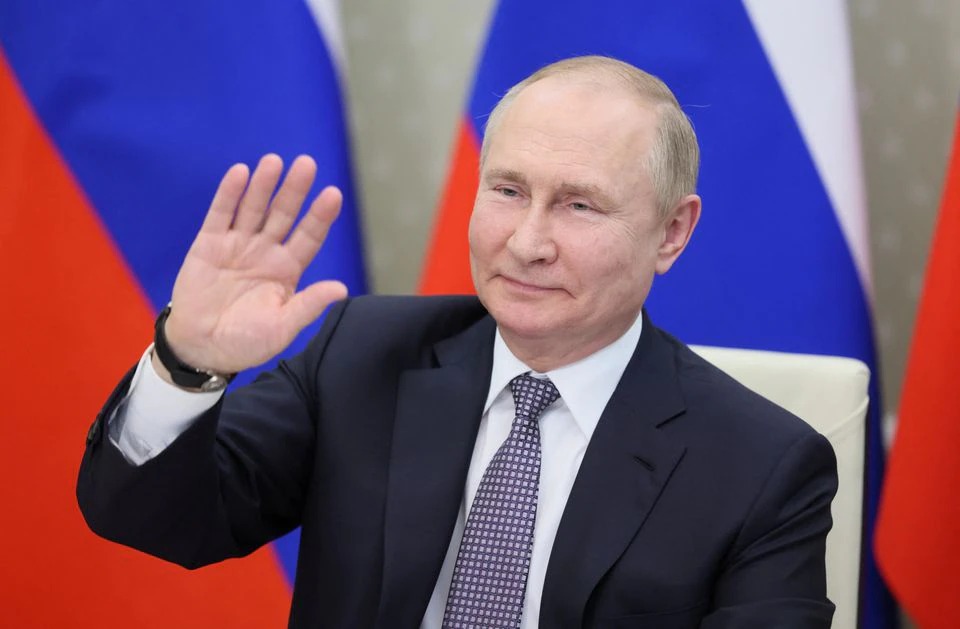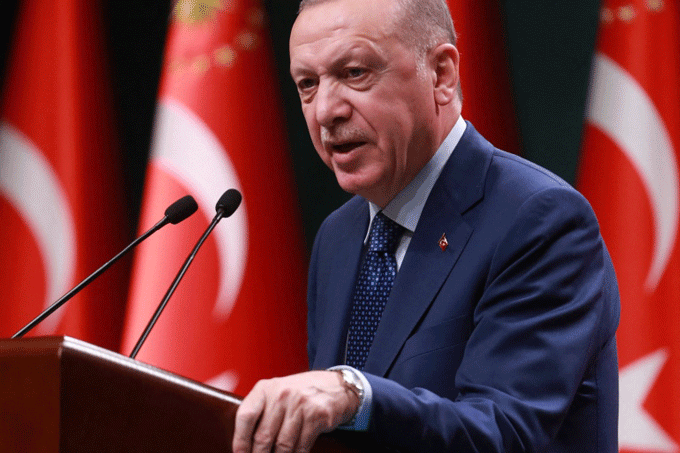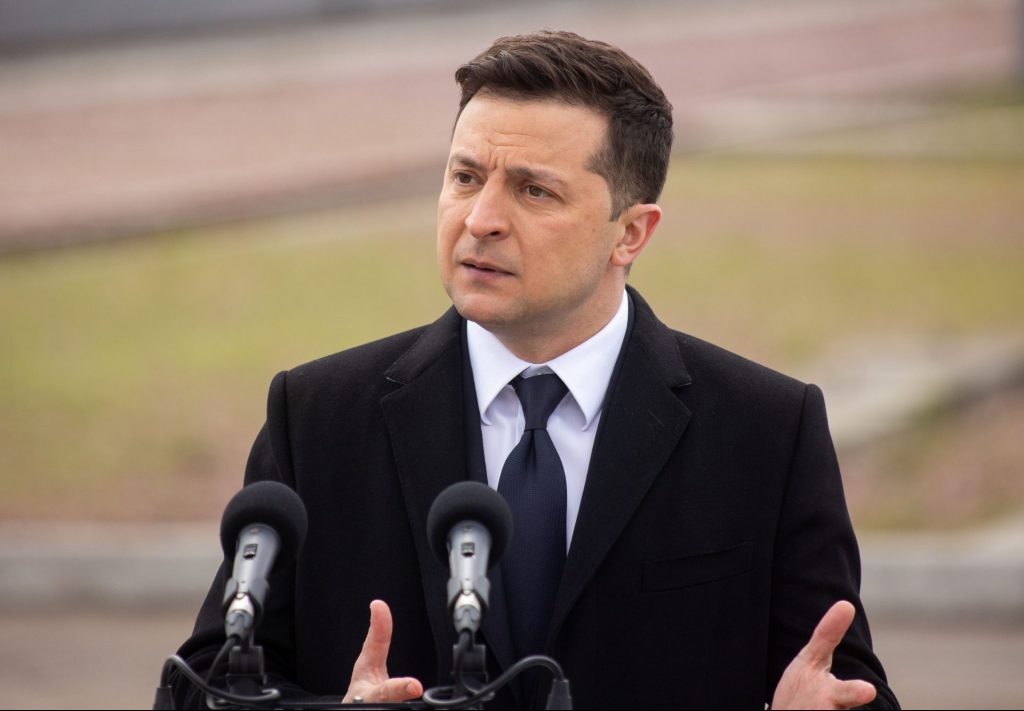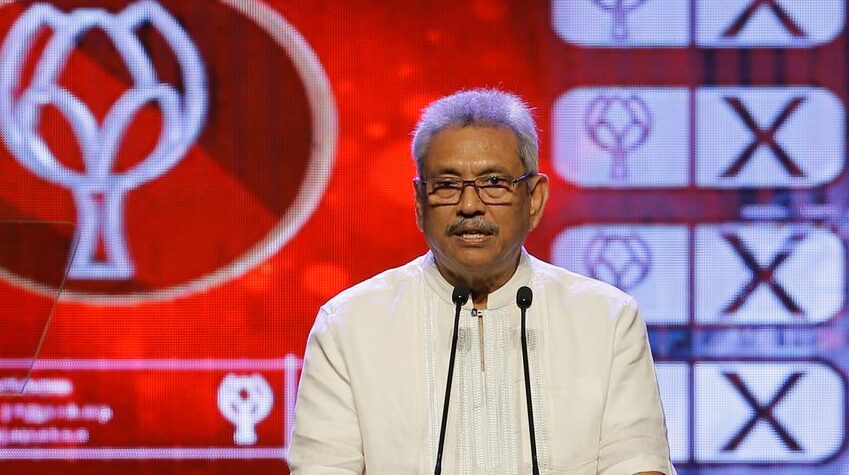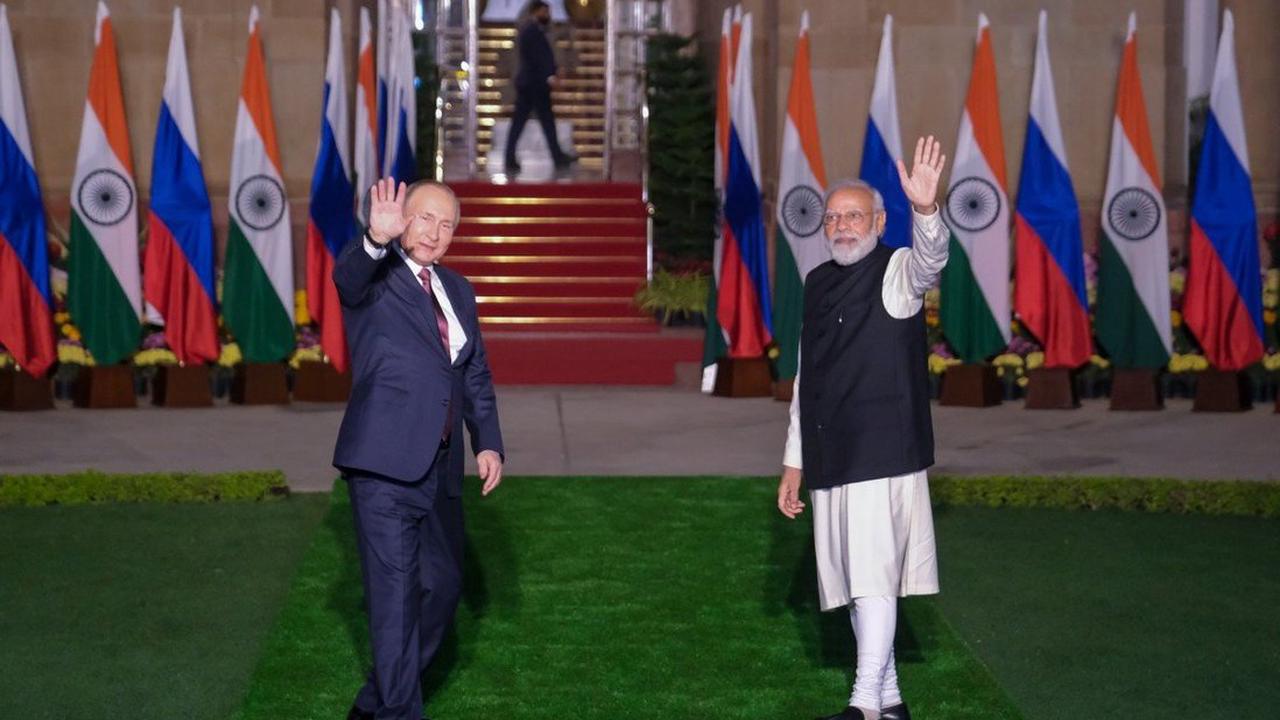
Weeks after a summit between Prime Minister Narendra Modi and President Vladimir Putin yielded 28 agreements including military deals, Russia and India have exchanged a white paper on ways to step up their defence cooperation in Central Asia.
The document includes recommendations on how both countries can jointly manufacture defence equipment in the former Soviet states of Kazakhstan, Kyrgyzstan, Tajikistan, Turkmenistan and Uzbekistan, and conduct bilateral counterterrorism and military drills, Indian media reported.
On Tuesday, Putin met his Tajiki counterpart Emomali Rahmon in St. Petersburg and revealed that Moscow had recently supplied weapons to Dushanbe to counter security threats.
It comes amid an upswing in Russia-India relations, as both try to increase their influence in the energy-rich region bordering Taliban-ruled Afghanistan, which is mired in economic woes and faces the risk of rising militant attacks.
The cooperation espoused by the white paper is in stark contrast to the situation a few months ago when Russia left India out of meetings it convened on the political transition in Afghanistan with envoys from the US, China, Pakistan and the Taliban.
Analysts said Moscow was wary about New Delhi’s growing trade and security ties with Washington including its participation in the US-led Quad defence grouping.
They added that three key issues – managing the potential fallout from the Taliban’s takeover of Afghanistan, a mutual unease about China’s growing footprint in Central Asia and concerns about the US’ role in the region – have now united both sides.
Russia is apprehensive about militants from terror groups such as Islamic State and al-Qaeda infiltrating Central Asia and destabilising the region, while India – which has invested US$3 billion in Kabul – is also closely watching the country’s progress.
- Chamisa under fire over US$120K donation
- Mavhunga puts DeMbare into Chibuku quarterfinals
- Pension funds bet on Cabora Bassa oilfields
- Councils defy govt fire tender directive
Keep Reading
It is also worried that militancy in Afghanistan could impact security in its restive northern region of Kashmir.
Rajan Kumar, an associate professor at the Centre for Russian and Central Studies in Jawaharlal Nehru University (JNU), said India had been “forced to think hard” about its ties with the US after it hastily pulled out American troops from Kabul in August, without intimating New Delhi.
Another factor, said Kumar, was the Aukus defence pact between the US, Australia and Britain to equip Canberra’s navy with nuclear-powered submarines.
The deal – widely seen as a counter to China’s growing power in the Indo-Pacific – resulted in Australia scrapping a diesel-powered submarine contract with France, drawing an angry response from Paris.
“There is a tacit understanding in India that the US is not a reliable partner,” Kumar said.
“If the US could dump France, its Nato ally, then it can’t be counted upon for its non-ally partners is what many feared in New Delhi,” Kumar said.
Moscow’s Recalibrations Harsh Pant, a professor of international relations at London’s King’s College, said Moscow recognised that the Taliban’s governance was unlikely to be inclusive and this resulted in it recalibrating its Afghanistan approach.
“Russia realised very early on that the dream that Pakistan was selling them about this being Taliban 2.0 and that this Taliban would work differently was not realistic,” Pant said, pointing to policies such as excluding ethnic minorities like Tajiks and Hazaras in the cabinet and banning girls from schools.
“That’s when Moscow understood that New Delhi’s appraisal of the Taliban regime was much more realistic,” he said.
Such change in stance was crucial for Russia because a non-inclusive Taliban would mean an unstable Afghanistan and an unstable neighbourhood, which Moscow counts as its “sphere of influence”.
A stronger partnership with India allows Russia to root for a more stable Afghanistan, argued Pant, who is also head of the Strategic Studies Programme at the Observer Research Foundation, a New Delhi-based think tank.
“The message that Russia and India are sending to stakeholders is that political inclusion is intertwined with political stability.”
Aleksei Zakharov, a research fellow at Moscow’s School of International Affairs of Higher School of Economics, said Russia’s shift in policy toward India also came from the realisation excluding it from the Taliban talks was affecting bilateral relations.
The strain was visible when Russia’s Foreign Minister Sergey Lavrov clubbed his April visit to New Delhi with Pakistan – India’s arch-rival.
- Jaishankar, Lavrov’s Indian counterpart, returned the favour by combining a trip to Russia with a stopover in the eastern European nation’s rival Georgia two months later.
“There is an understanding [in the Kremlin] that divergences over the Afghanistan settlement are toxic for the overall relationship with India, and that New Delhi has been somewhat side-lined following the Taliban’s grab of power and now needs Moscow’s help,” Zakharov said.
New Delhi’s Calculations JNU’s Kumar said India’s recent efforts to step up its engagement with Central Asian nations also had the backing of Russia.
In early November, national security advisers from Kazakhstan, Kyrgyzstan, Tajikistan, Turkmenistan, Uzbekistan, Iran and Russia took part in the India-hosted regional security dialogue on Afghanistan.
Among the attendees, Tajikistan, Turkmenistan and Uzbekistan share land borders with Afghanistan.
Last week, the foreign ministers of the five Central Asian nations visited New Delhi to participate in the India-Central Asia dialogue. Indian media reports speculated that the Modi government is planning to invite the leaders of these five states as chief guests for the country’s Republic Day parade in January.
“These five countries fall under Russia’s sphere of influence and except, maybe Uzbekistan, none of them would enter into partnerships with other nations without tacit approvals from Moscow,” Kumar added.
While Russia and China have presented a united front against rising Western diplomatic pressure, Moscow is still keen to check Beijing’s growing influence in the Central Asian region.
“There are signs that Russia may be wary of growing Chinese presence in the region with Beijing’s grip on Afghan affairs and a military outpost in Tajikistan,” said the Moscow-based Zakharov.
He added that India’s growing engagement with the region is only a “positive development for Moscow” and it would only “welcome” it.
Pant, the academic, agreed, saying the two countries are trying to send messages to China through the enhanced engagement.
“The message from India is that it is willing to step up its engagement with other countries through issue-based coalitions to prevent China’s grand ambitions in the region, while Russia is trying to point out to Beijing that it has other friends, and it won’t just abandon New Delhi,” he said.
Amid this renewed enthusiasm in diplomatic relations, Moscow could also hold the key for a possible India-China reconciliation as a 20-month military stand-off at their shared border shows no signs of easing.
Earlier this month, Russian Presidential aide Yuri Ushakov Mikhail Metzel said that Putin and Modi had discussed the possibility of a Russia-India-China summit in the near future.
“Russia might not want to admit it, but it wants to show that it is the only country that can help bring peace between China and India,” Kumar said. – INDIAN DEFENCE NEWS



